Perform better with less stress
Quantify your bodies stress load to calibrate daily routines for health, resilience and performance
Trusted by executives from
%201.avif)
%201.avif)

%201.avif)
%201.avif)
%201.avif)
%201.avif)

%201.avif)

%201.avif)


%201.avif)
%201.avif)

%201.avif)
%201.avif)
%201.avif)
%201.avif)

%201.avif)

%201.avif)


What we offer
Quantify stress in your body and calibrate daily routines
We enhance energy, health and performance of professionals with 350+ stress and health markers, tailored action plans, expert coaching, and team workshops
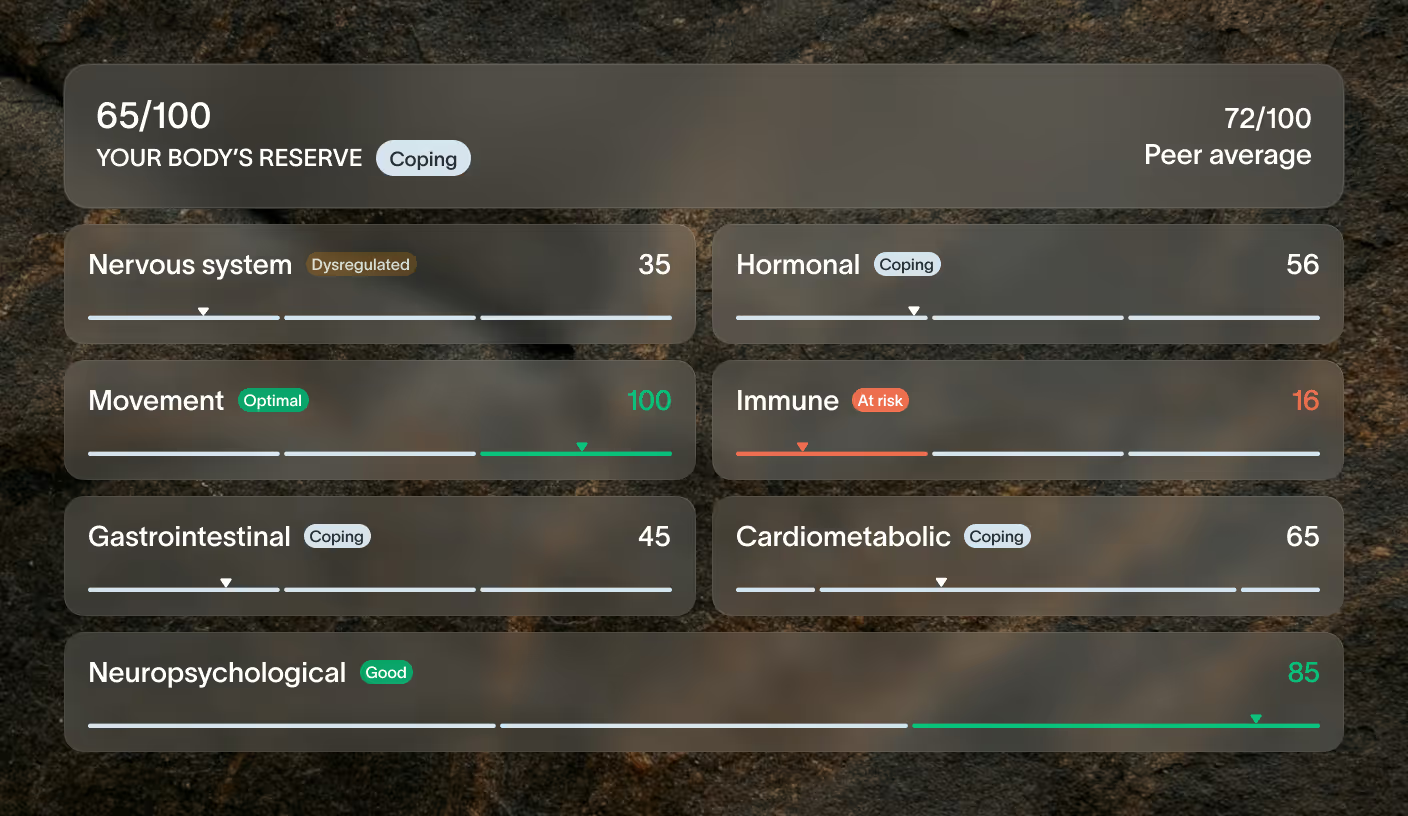
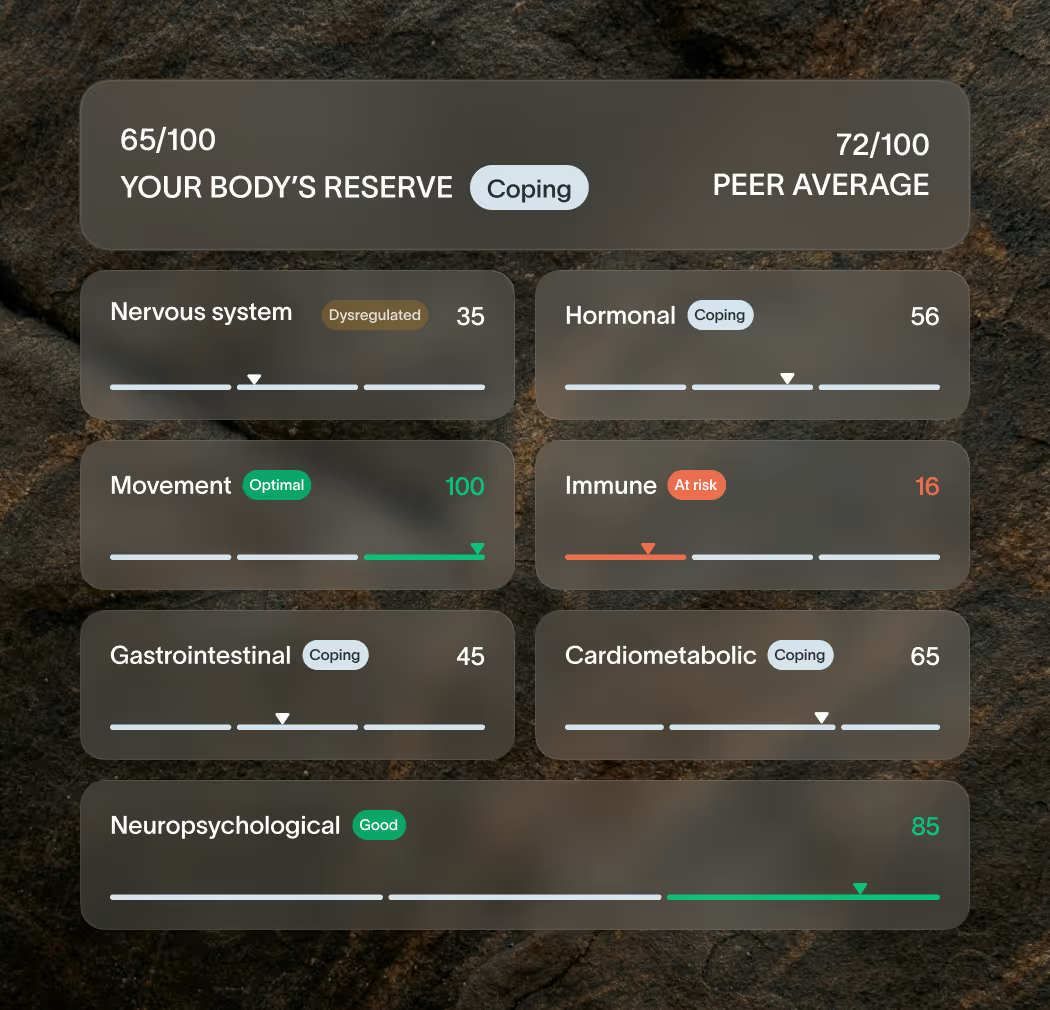

Stress & health, quantified
Map how stress shows up in your body with 350+ markers
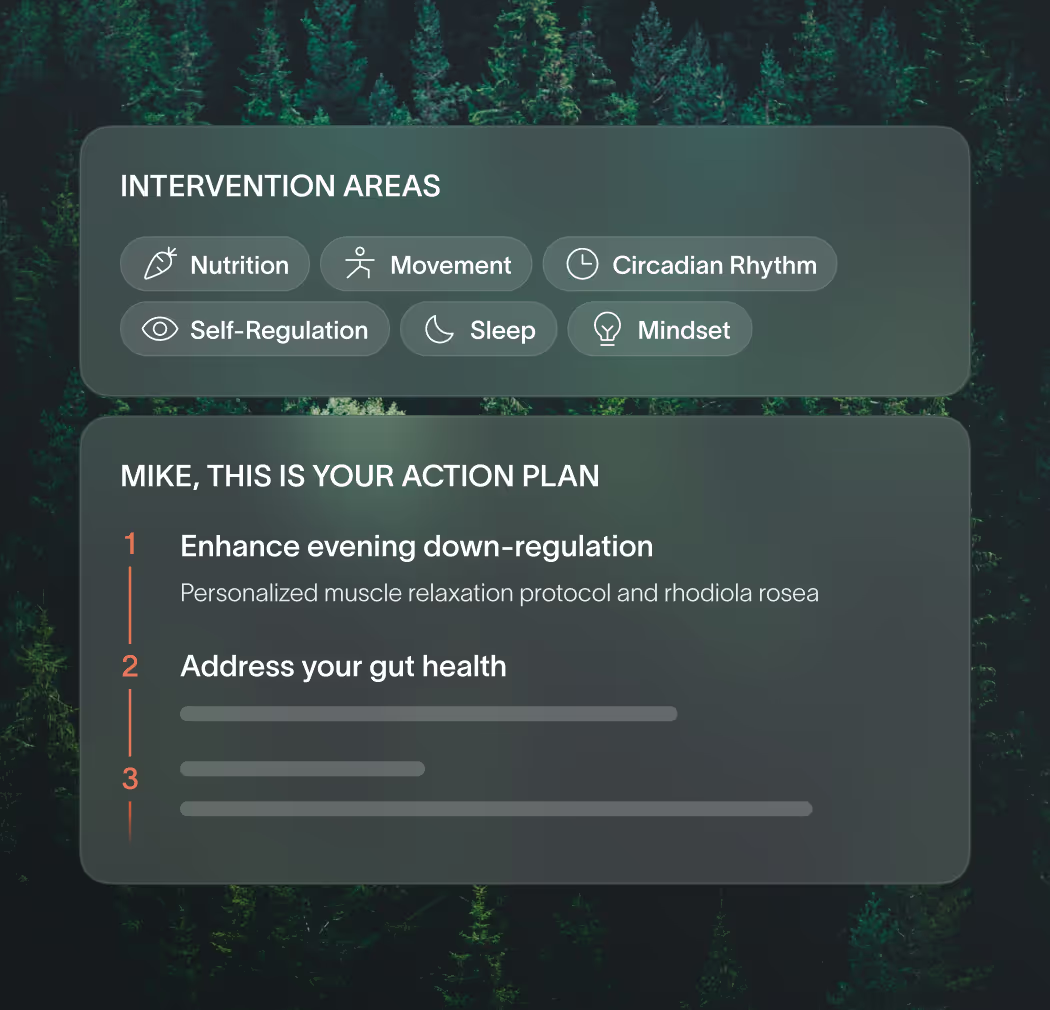
Personalized actions
Work with experts to translate data into a personalized plan
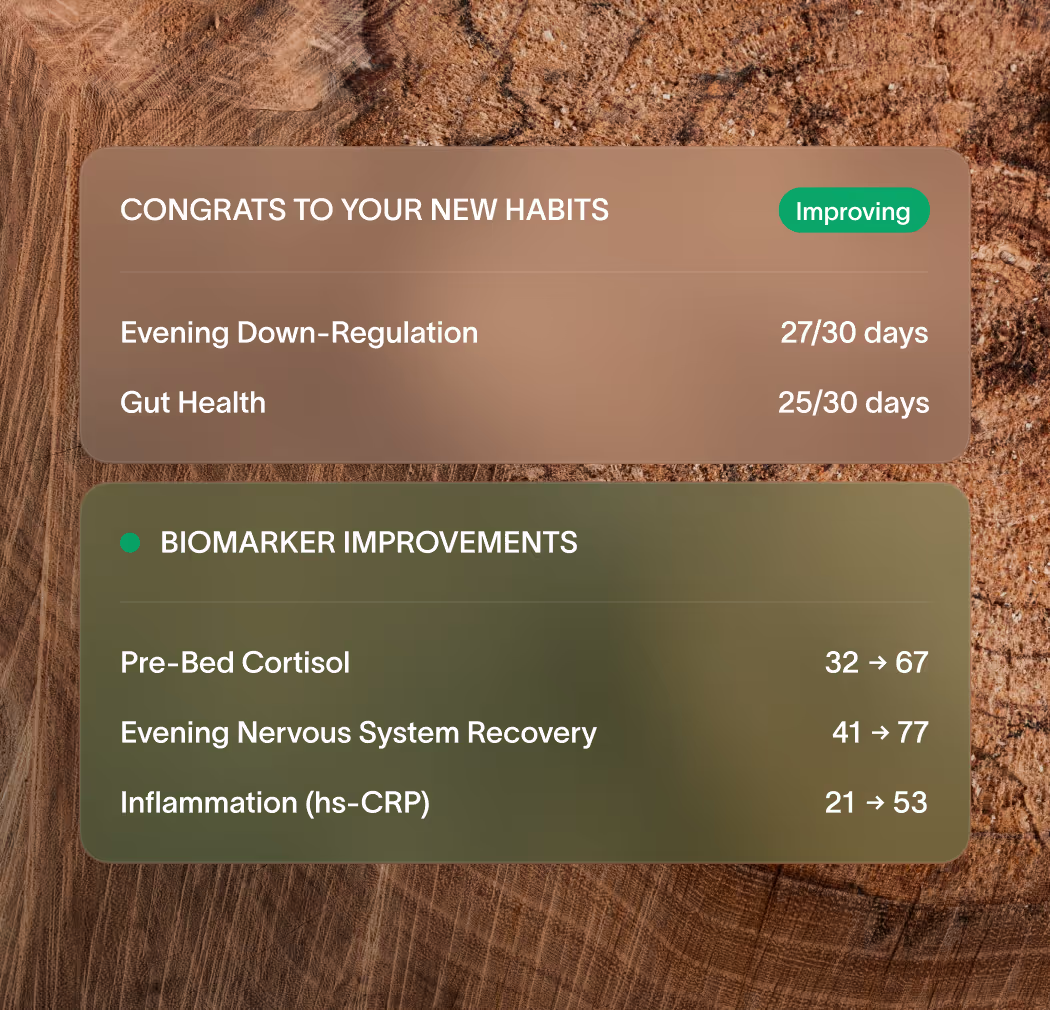
Lasting performance
Get support in refining daily routines and measure progress
Why clients join
Maximize your impact and stay healthy
A systematic and data driven approach to raise your energy, feel more present and in charge of your calendar and life
Why it works
A scientific way to align daily routines with your biology

Prof. Robert Paul Juster
Scientist on stress impact on health

Prof. Clemens Kirschbaum
Leading stress hormone researcher
350+ studies
Allostatic load science
47+ biomarkers
Evidence-based markers
39+ self-assessments
Research-validated questionnaires
Explore the research
How it works
From body data to daily routines
01
Test in <1 hour at home
Receive a test kit to collect hair and saliva samples, wear a heart-rate monitor for one workweek and complete a short assessment (optional add-on tests available). Total time: 1 hour at home or during a company event.
Learn More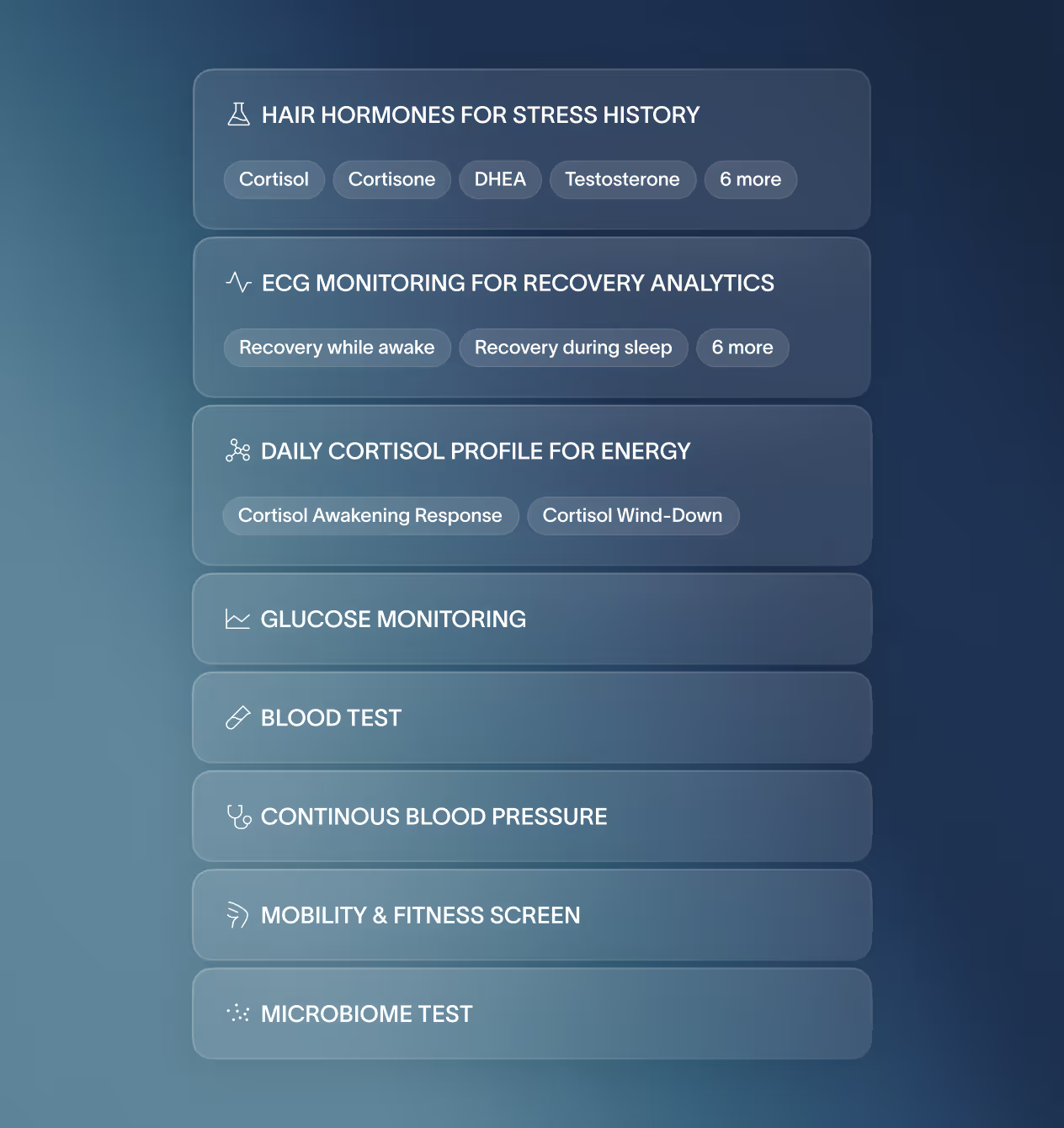
02
Understand your results
Within 2 weeks, you receive a clear report covering 7 body systems and highlighting potential stress drivers and protective factors
Learn More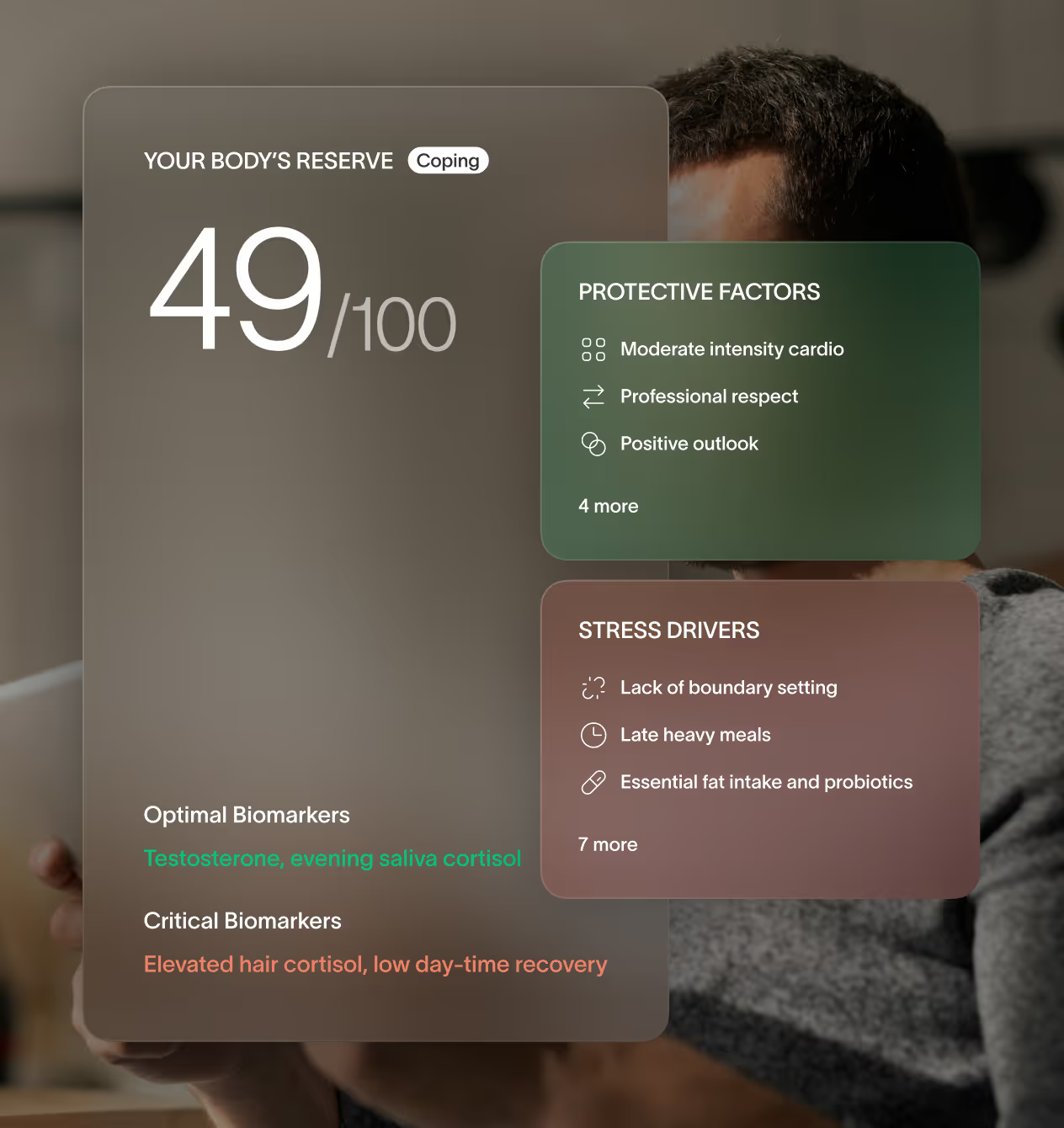
03
Co-create your action plan
Turn your results into a personal roadmap with specific next steps - in a video call with a former medical doctor or PhD-level expert.
Learn More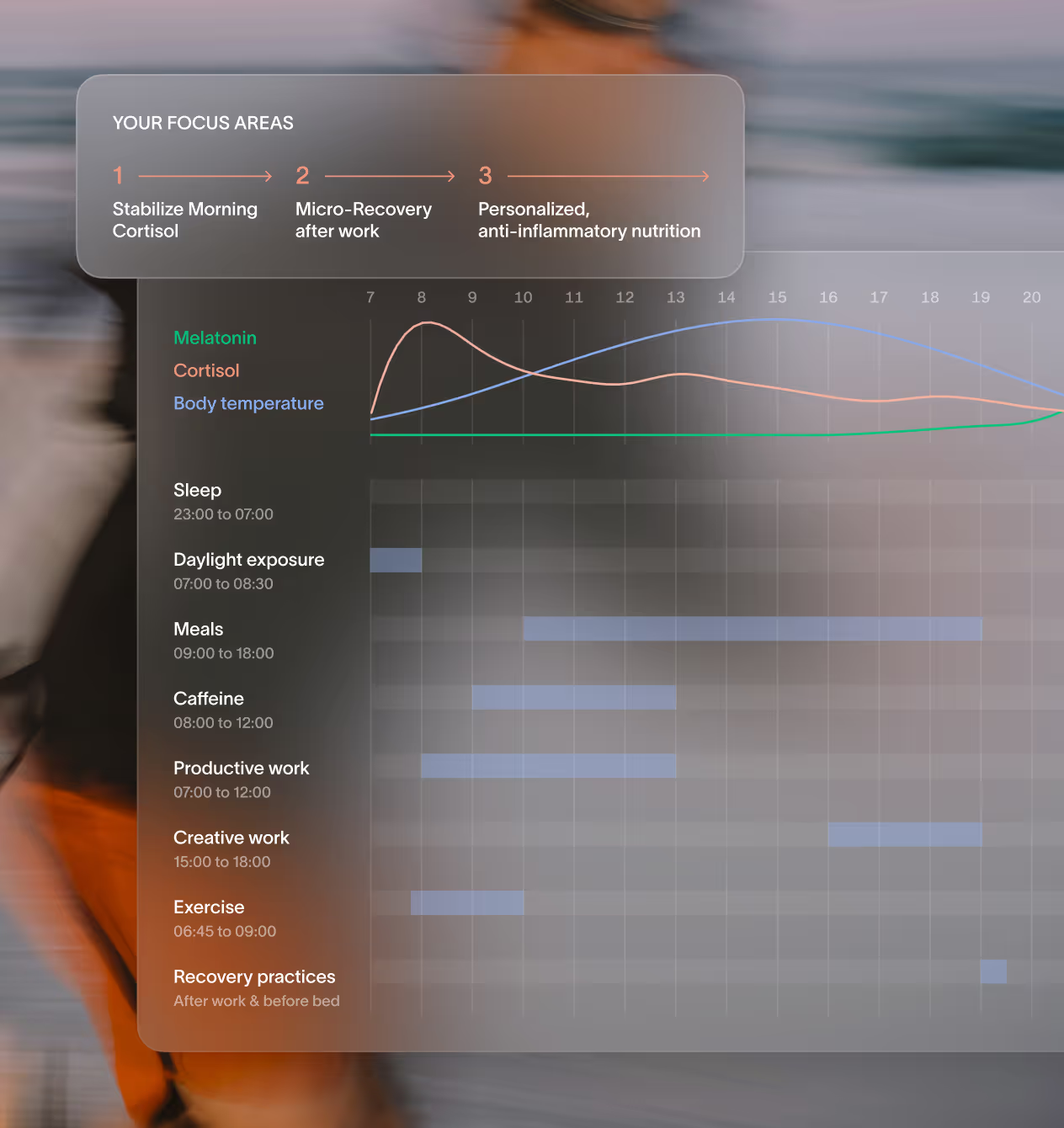
04
Get personal support on daily routines
Pick one focus area per month, build 2–3 routines, and get expert support to refine them step by step.
Learn More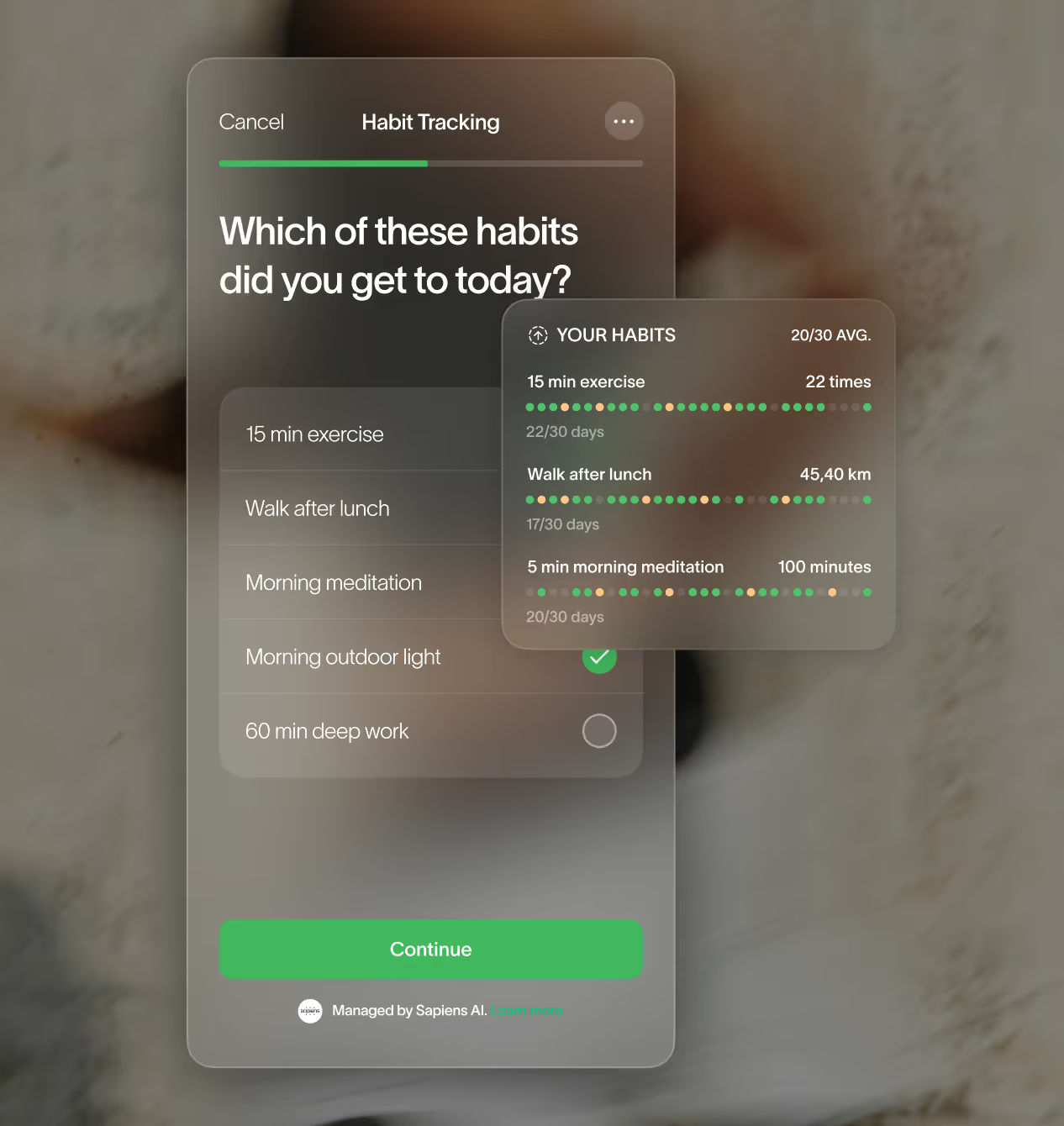
05
Measure impact
Based on your focus area, you’ll receive follow-up tests at home each month and can repeat the full diagnostics every 6 months.
Learn More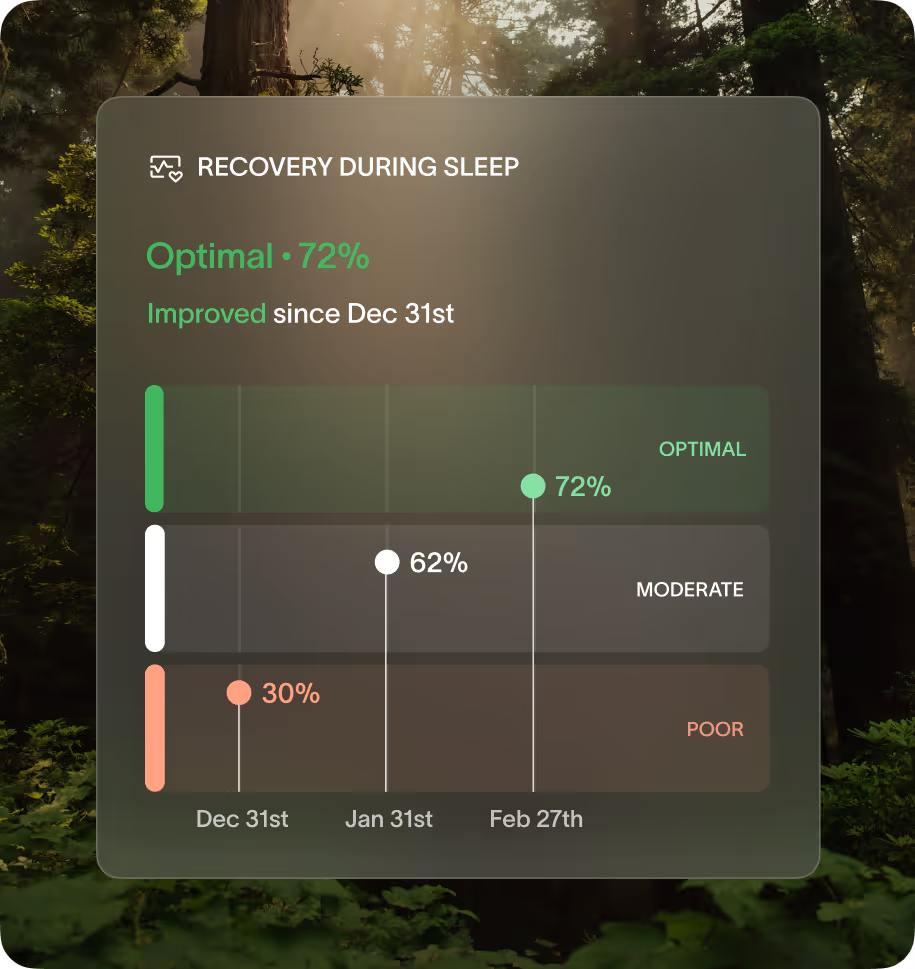
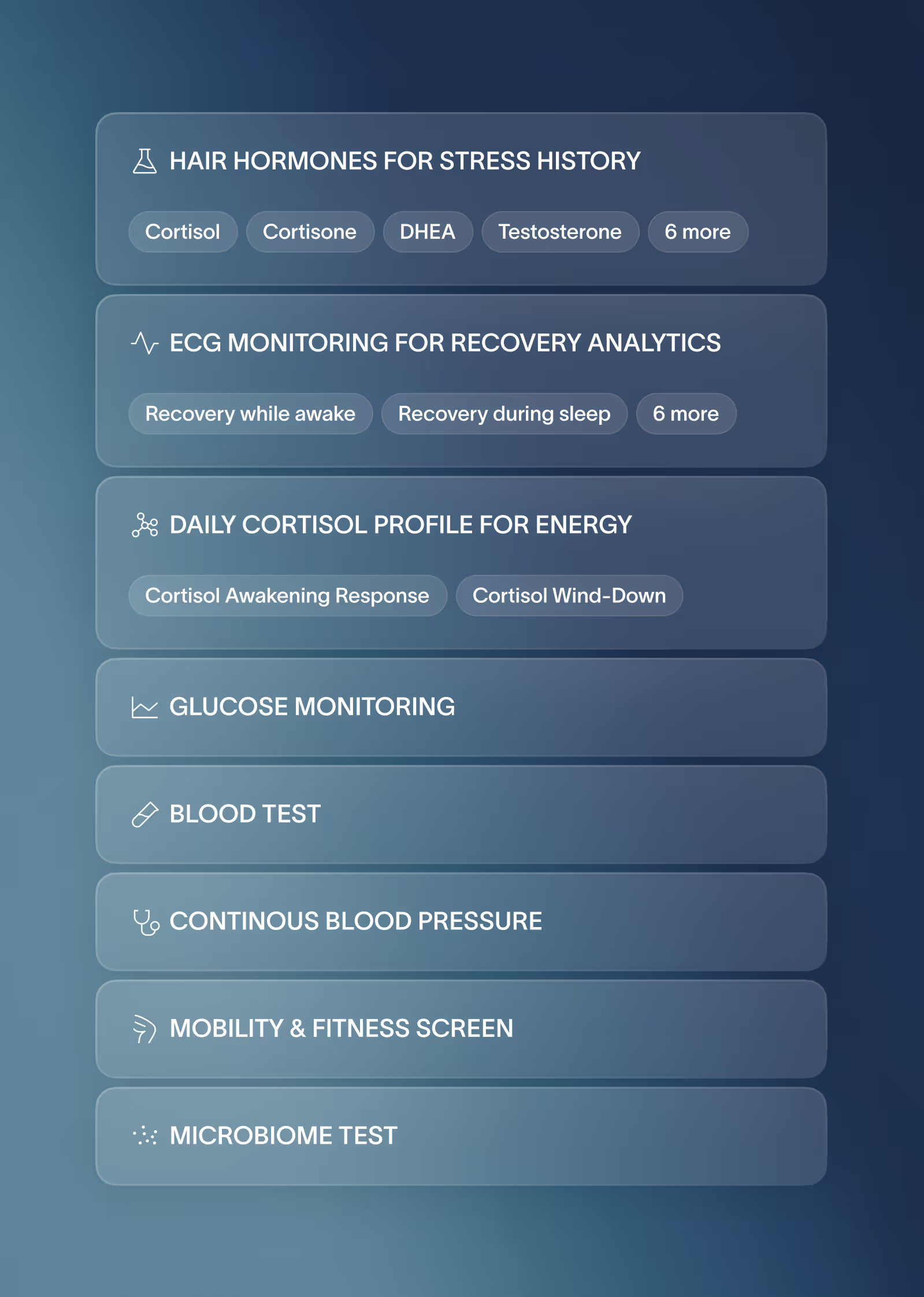
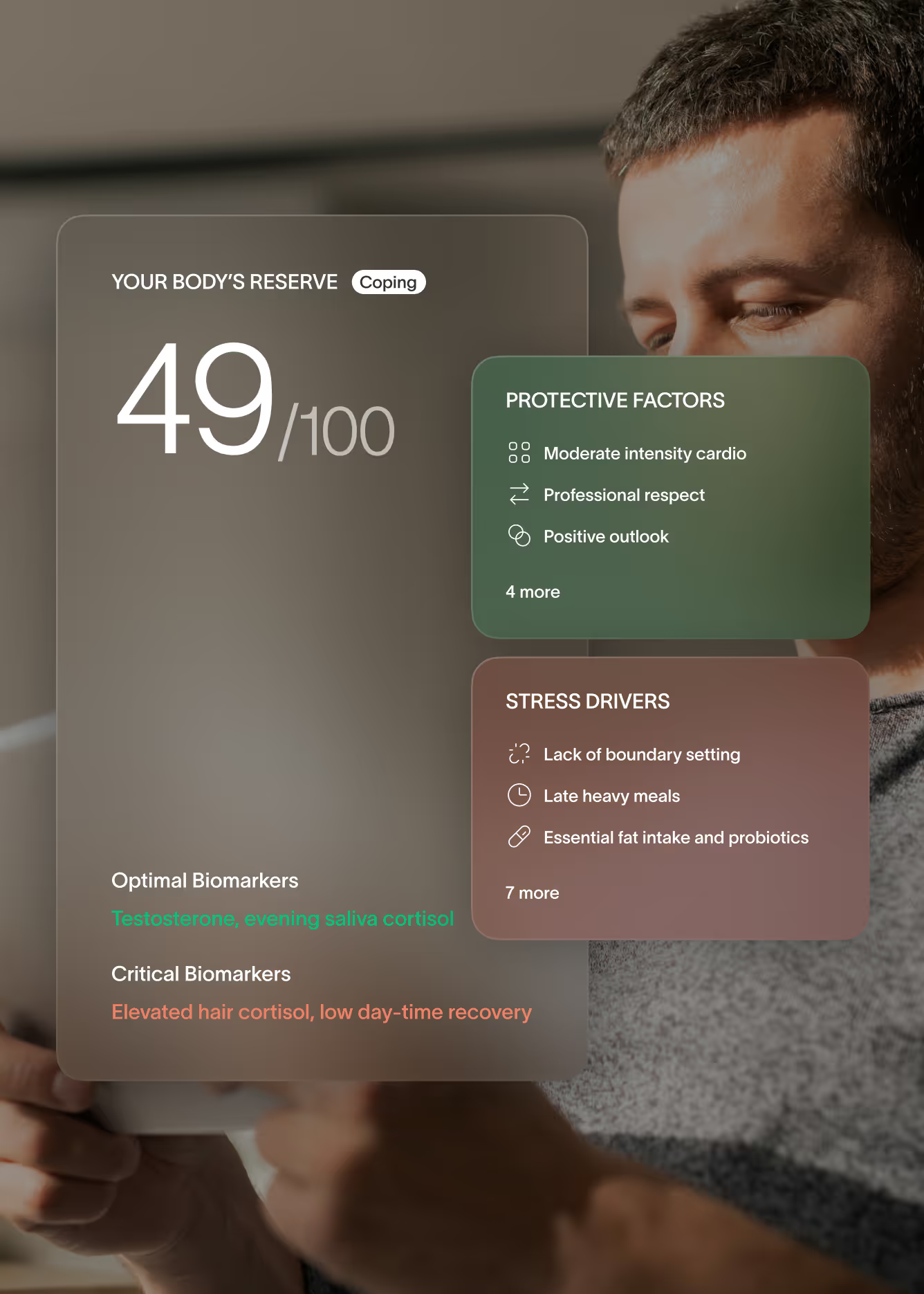
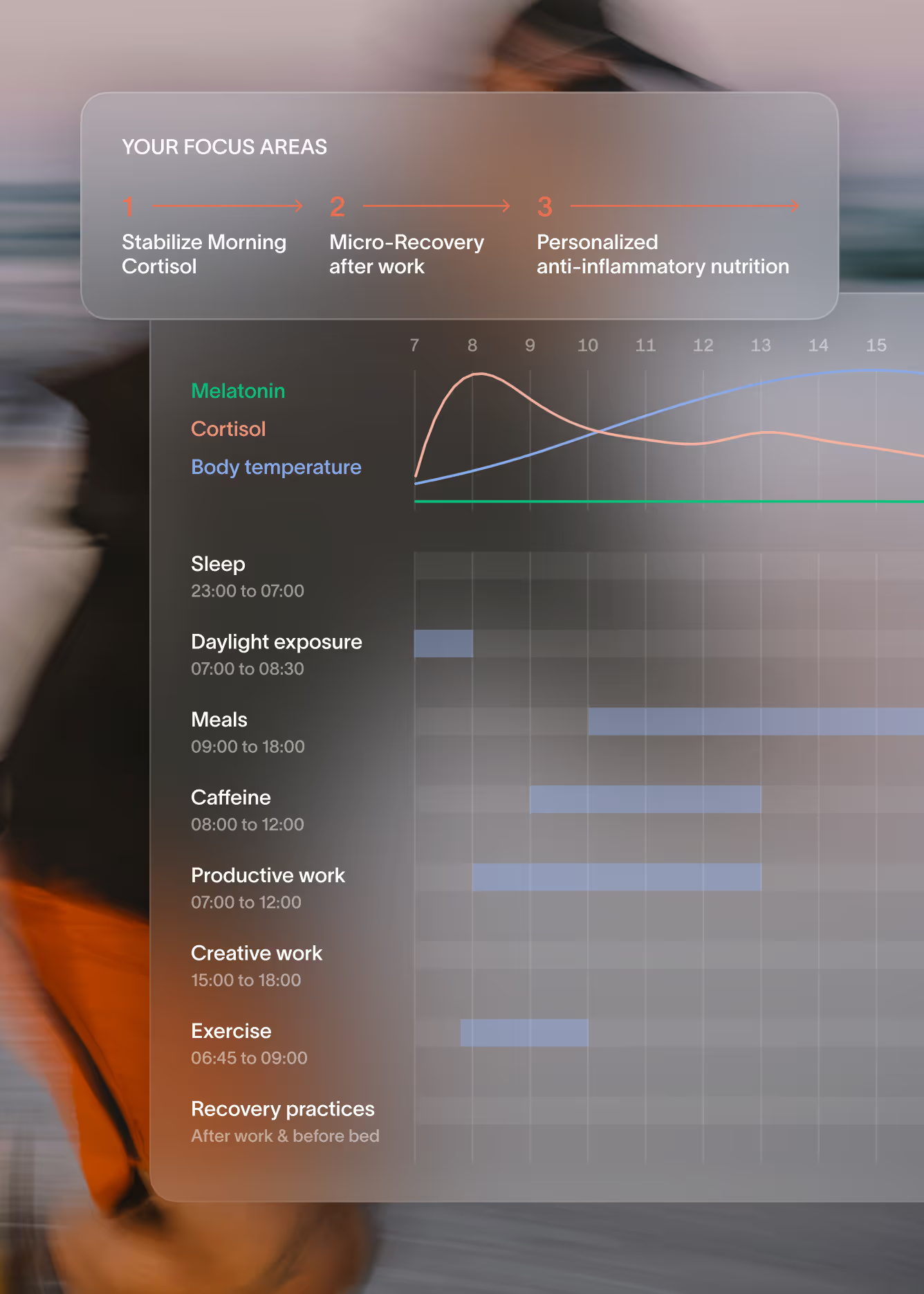
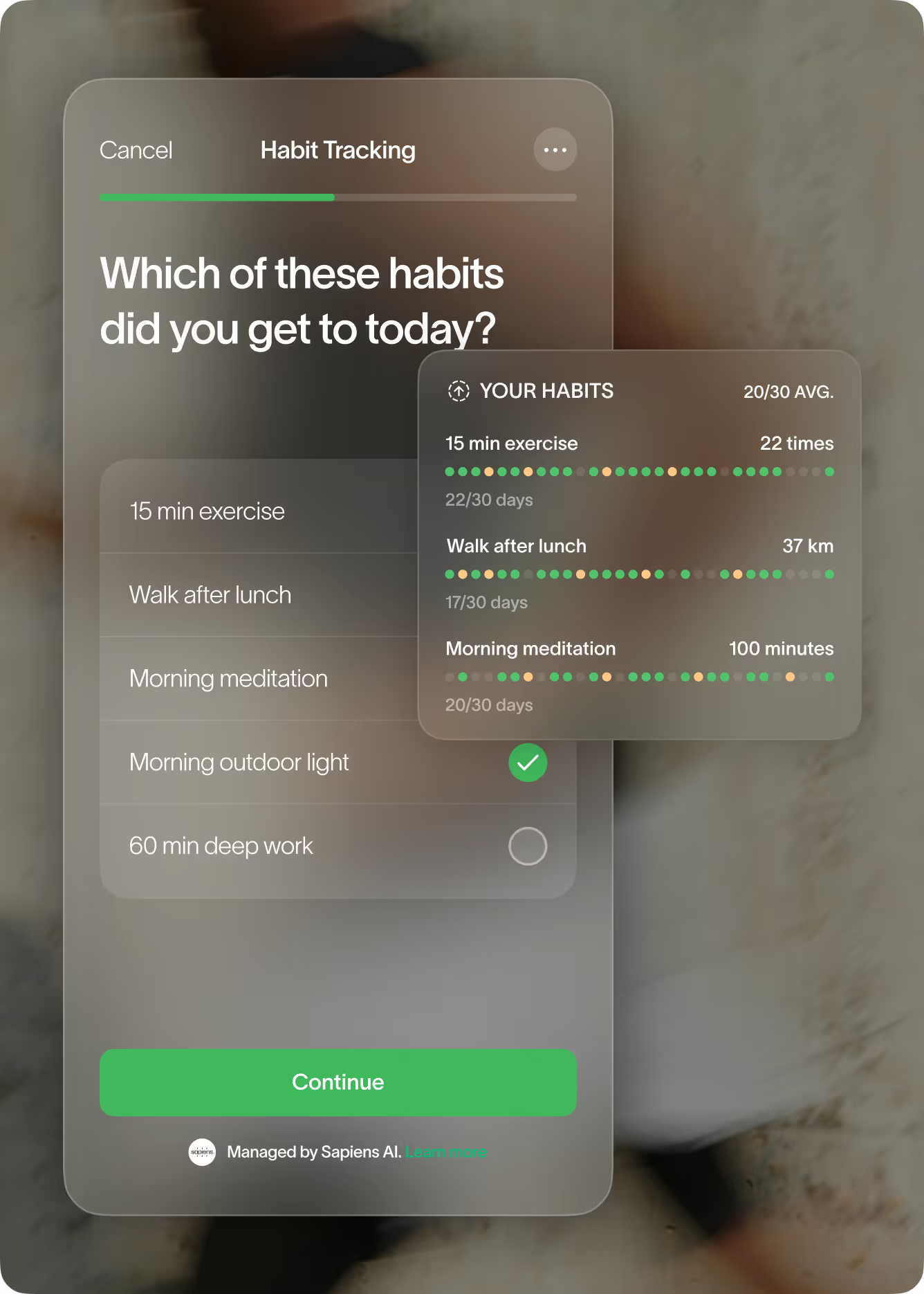
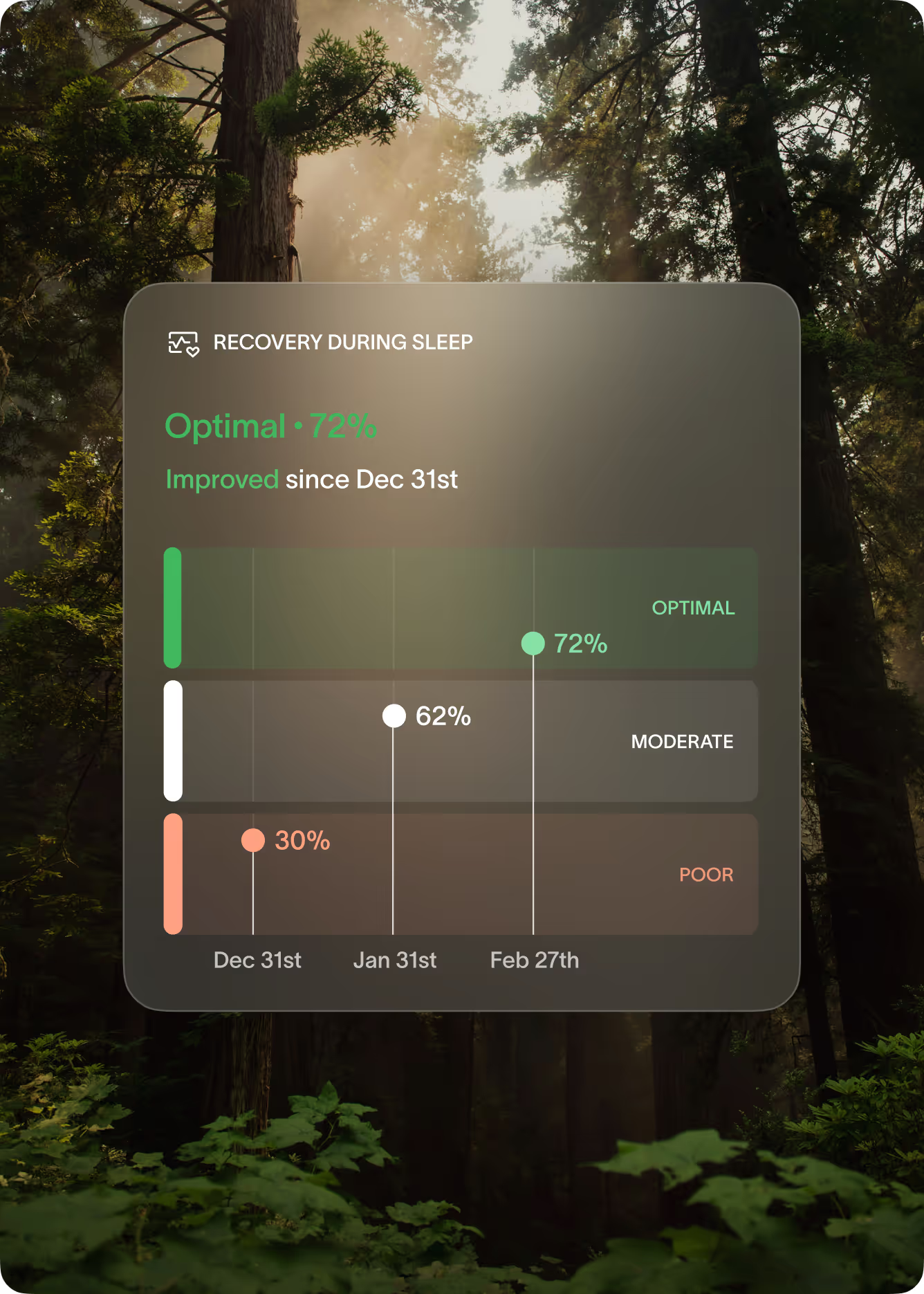
Who we are
Developed by scientists and people who know your job
We support you with coaches who understand the intensity of your job, PhD-level experts in medicine, sleep, nutrition, neuroscience and world-class stress scientists
Our people




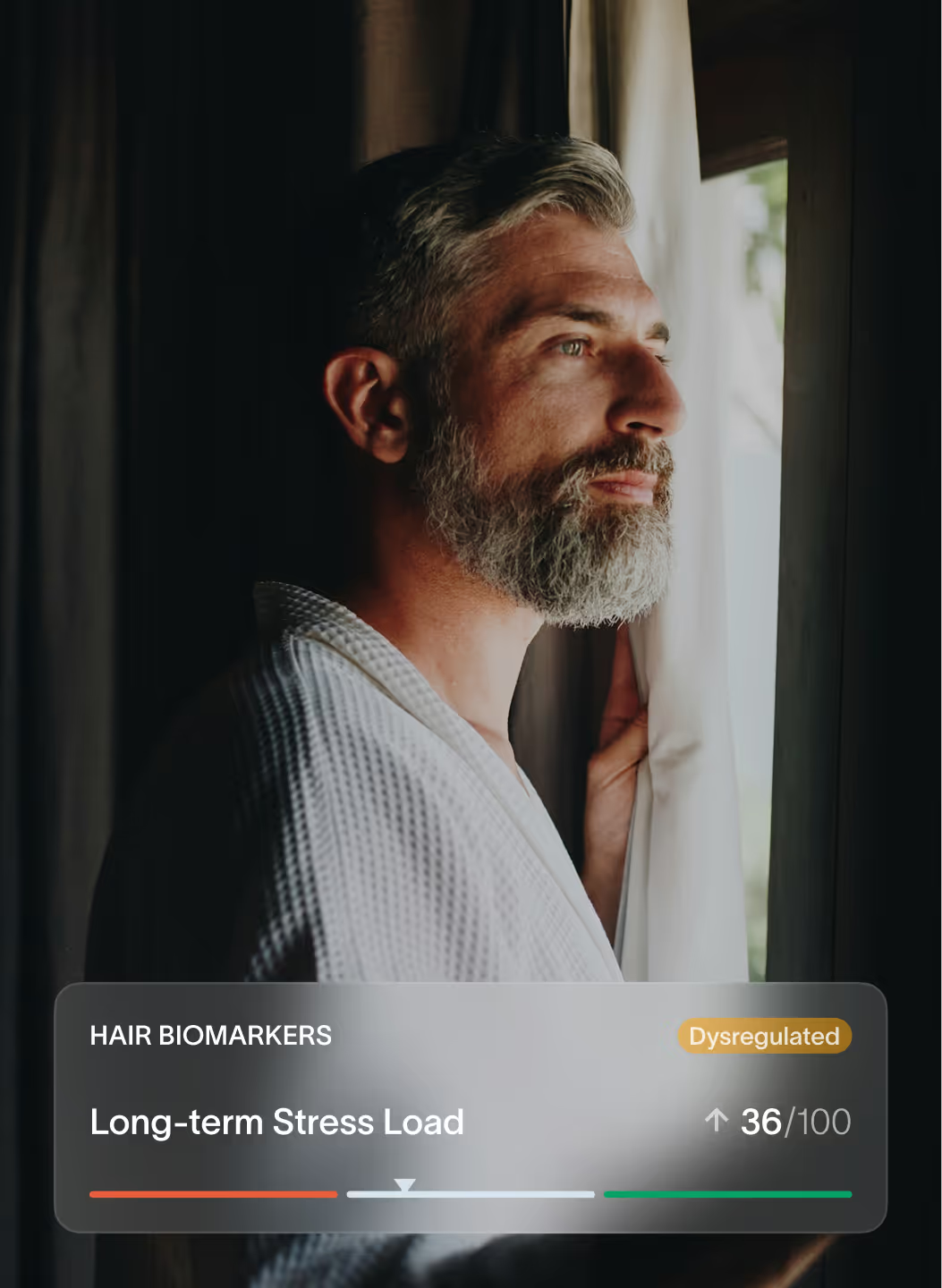
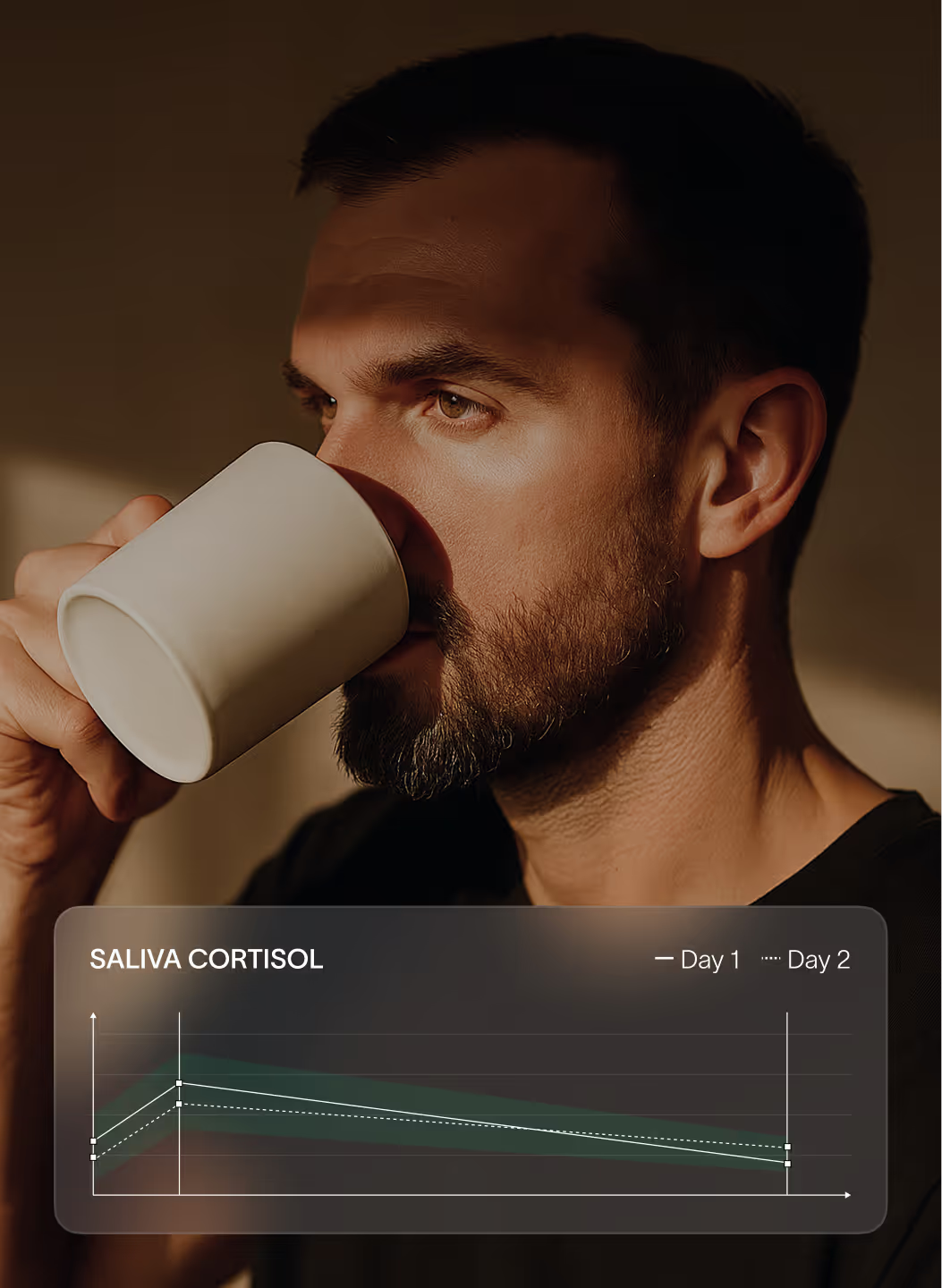



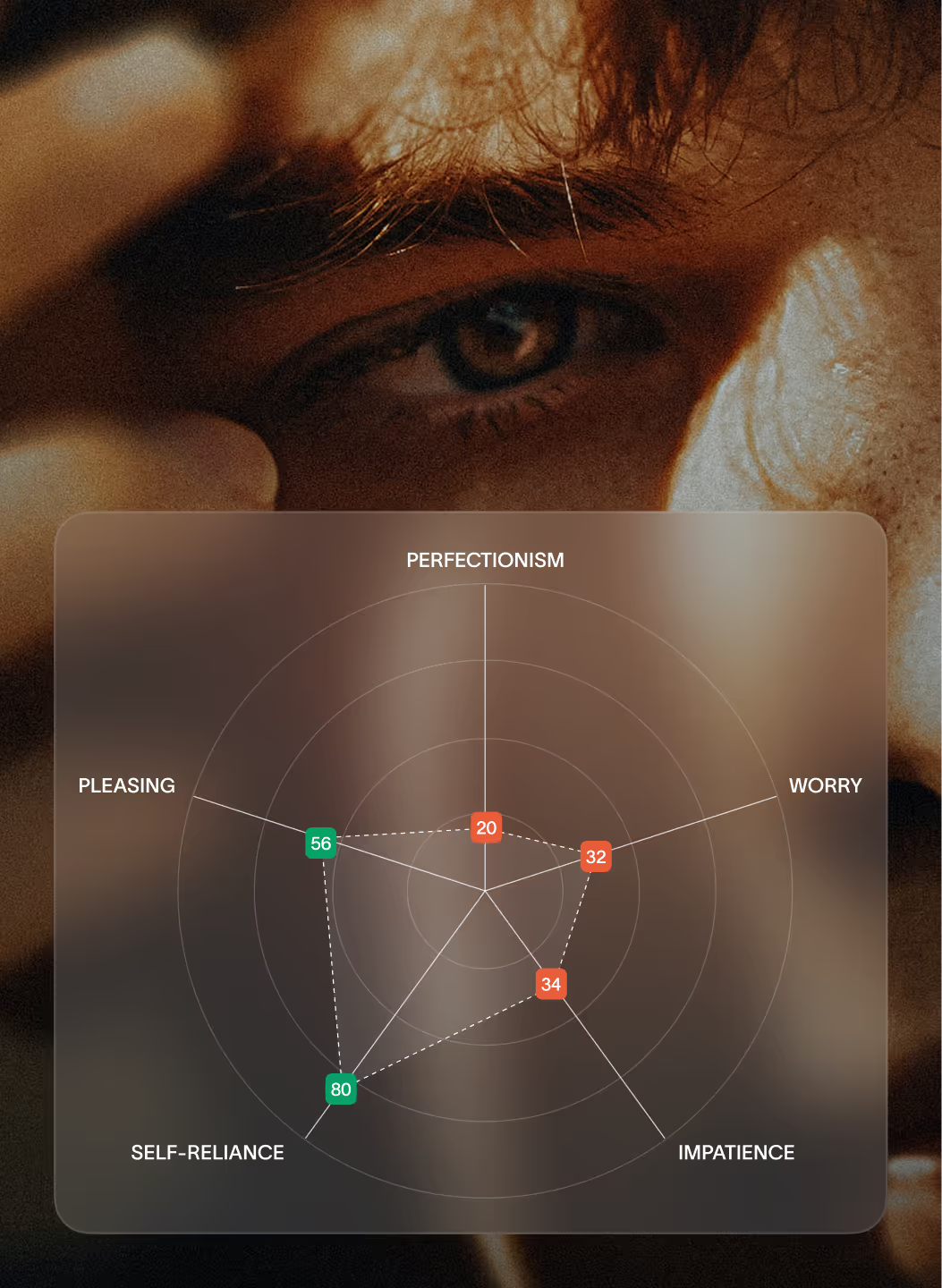


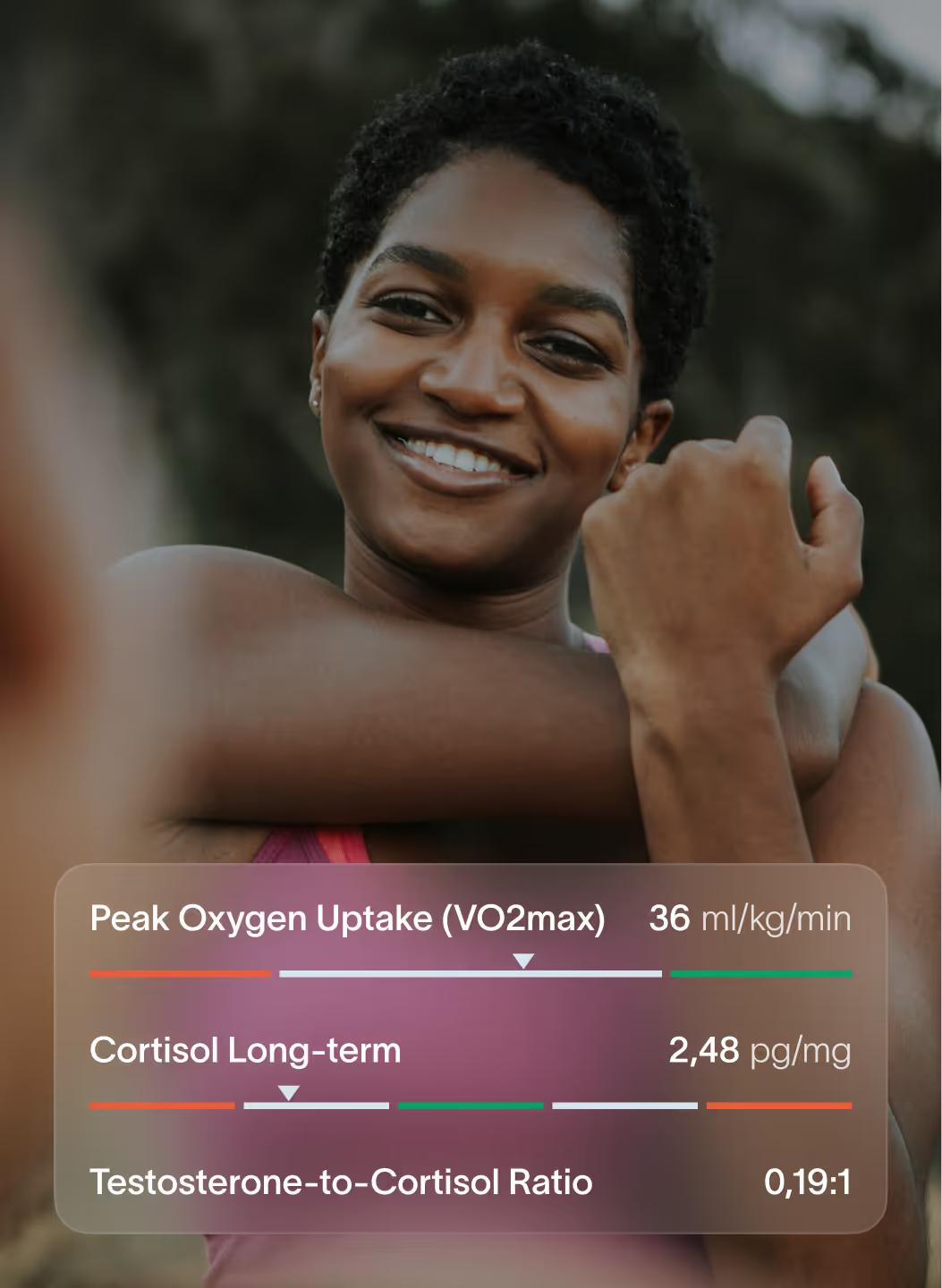




















%20(1).svg)



.avif)


.avif)
.avif)
%20(1).avif)
.avif)

.avif)
.avif)
.avif)







.avif)
.avif)


